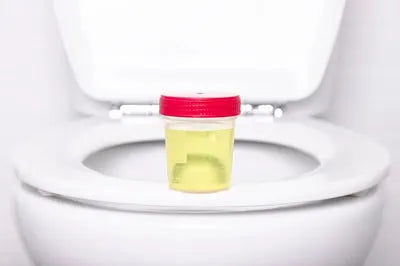“How long can I hold my pee?” is an age-old question that comes to both the minds of adults who just can’t seem to reach the restroom and children who are holding a contest to see who can go the longest without peeing.
While delaying your urge to pee by an hour or two won’t result in any health issues, it certainly is possible to hurt yourself by holding your pee for too long or by making a habit of not peeing when you feel the need to.
In this blog, we’ll take a quick glance at questions such as: How long can you hold your pee? What happens if you hold your pee too long? How long is too long to hold your pee?
About the Bladder
The bladder is an expandable organ that stores the urine it receives from the kidneys via the ureters. When the bladder expands to a certain extent, your brain receives a signal that indicates that you need to pee.
When you first feel the urge to pee, you still have some time before the bladder reaches its maximum capacity, in instances like this, your bladder will contract to hold the excess urine in. When you’re ready to pee, your brain sends a signal to the bladder to contract and squeeze the urine out through the urethra and out of the body.
Bladder Capacity for All Age Groups
A table for all those who wonder how long can you go without peeing:
|
Age |
Average Bladder Size |
Time to Fill Bladder |
|
Infant (0–12 months) |
29.57-59.14 ml |
1 hour |
|
Toddler (1–3 years) |
88.72-147.86 ml |
2 hours |
|
Child (4–12 years) |
207.01-414.02 ml |
2-4 hours |
|
Adult (12 years and above) |
473.17-709.76 ml |
8-9 hours |
How Long Can a Person Hold in Their Urine?
The amount of time a person can hold in their urine depends on various factors like how much they have had to drink, and what they have had to drink.
Ideally, you shouldn’t hold your pee in for longer than the time it takes to reach a restroom. A healthy bladder can hold up to 500 ml of urine before it's full. It takes your body almost 9 to 10 hours to produce 500 ml of urine. That’s about how long you can hold your urine and still be in the safe zone without damaging your organs.
What Are the Dangers of Holding Your Pee?
Have you ever wondered how long can you go without urinating, or what are the dangers if you don't pee for a long time? Well, the dangers associated with holding in urine often affect you overtime. While a one-time instance, like enduring a six-hour road trip without a bathroom break, is not considered a urinary problem, consistently ignoring the urge to urinate can lead to various complications. Here are the key risks and consequences:
Urinary Tract Infection (UTI):
- Failing to empty the bladder regularly allows bacteria to multiply inside the urinary tract, increasing the risk of urinary infection and urinary frequency.
- Infrequent bladder emptying may lead to the development of UTIs.
Bladder Atrophy and Incontinence:
- Habitually holding urine can result in bladder atrophy (weakening of the bladder).
- Over time, this atrophy may contribute to the onset of incontinence, affecting bladder control.
Urinary Retention:
- Holding urine for extended periods, such as 10 hours or more, may lead to urinary retention.
- In this condition, the bladder muscles struggle to relax, hindering the ability to relieve oneself even when desired.
Bladder Rupture (Rare):
- In exceptionally rare cases, prolonged instances of holding urine can cause the bladder to rupture.
- This serious condition requires immediate medical attention.
In summary, it is crucial to respond to the body's natural signals and urinate when necessary to prevent these potential complications. Regular emptying of the bladder supports overall urinary health and minimises the risks associated with holding in urine.
How Often Should a Person Pee Per Day?
Frequency of urination differs widely from person to person. Typically, an average adult should pee six to eight times when they’re awake and no more than once per night after going to bed. An adult should pee about every 3 to 4 hours.
Medications and Certain Conditions Can Affect Frequency
Some medicines can mess with your bathroom routine. They're all about reducing fluid retention but end up making you peeing frequently.
On top of that, certain health conditions play a role in changing how often you pee. Take Diabetes, for instance - high blood glucose levels can lead to peeing a lot (polyuria).
Pregnancy, with that growing belly putting pressure on the bladder, also shakes up your urinary routine and increases your urinary frequency.
And for folks dealing with sickle cell anaemia, kidney function issues can mess with urine concentration and make you feel the call more frequently.
Bottom line: realising how medications and health conditions team up to mess with your frequency of urination is key for both you and your healthcare crew to handle these changes effectively.
Can a Person Die from Holding In Urine?
If you are wondering what happens if you hold your pee for too long, don’t worry—you cannot die from holding your urine. Your bladder will simply begin to release urine (that is, start the process of urination) if it isn’t able to hold it any longer.
However, skipping nature's call can cause certain health conditions such as a burst bladder or a bladder rapture, bladder dysfunction, UTI, etc.
Seeing the effects of what happens when you don’t pee, we at Friends have you covered. Friends adult diapers:
- Provide superior absorption for up to 16 hours.
- Are made to fit YOUR body perfectly to prevent leaks, spills and uncomfortable bunching.
- Have side leak guards to prevent leakage from the sides.
- Are free of chlorine, latex, toxins and harmful artificial fragrances.
- Are available in a number of different variants including overnight, pant-style and tape-style diapers and a number of sizes including S, M, L, XL and XXL.
Issues That May Affect Your Ability to Pee
When you have trouble starting to pee or suffer from an inability to pee, it might be because of the following conditions:
- Kidney failure
- Urinary Tract Infection or UTI
- An enlarged prostate gland or Benign prostatic hyperplasia (BPH)
- Urinary retention
When to see a doctor
You should see a doctor if you have any trouble peeing. If your bladder functions in any abnormal fashion, it might be a symptom of some other underlying health problem and should be consulted with a doctor immediately.
You should see a doctor if you experience any of the following:
- Frequently contacting UTIs
- Waking up several times during the night to pee
- Not being able to completely empty the bladder when you pee
- Urinary incontinence or involuntary leaking of urine
As a general rule, empty your bladder when you feel the urge to pee. If you are having difficulty peeing or experience any symptoms that might be of a medical condition, speak with a doctor right away.
Product Recommendations
FAQs
How long can you go without peeing before it kills you?
Holding your pee for too long won't really kill you. However, not peeing for an extended period, such as 24 hours or more, can potentially lead to serious complications. The exact timeframe varies based on factors like age and overall health.
Is peeing every 2 hours normal?
Peeing every 2 hours is generally considered normal, but individual variations exist based on factors like hydration, health, and lifestyle.
How long is it OK to go without peeing?
It's generally okay to go without peeing for about 3 to 6 hours, but individual factors such as hydration levels and medical conditions can influence this timeframe. While managing 3-6 hours without peeing is usually fine, making it a habit can lead to certain health conditions that may need medical intervention. Thus, use the bathroom as soon as you feel the urge to pee to maintain good urinary health and avoid potential problems.
When should you head to the bathroom?
Head to the bathroom when you feel the natural urge to urinate; delaying too long may lead to discomfort and potential health issues.




















